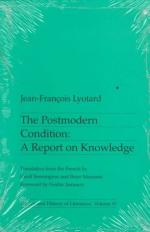|
This section contains 558 words (approx. 2 pages at 400 words per page) |

|
Appendix: What is Postmodernism? Summary and Analysis
Habermas posits that in changing the status of the aesthetic experience, one is no longer primarily interested in exploring the historical aspect of art. He states that the arts and experiences bridge the gap between the cognitive, ethical and political discourse, which leads to a unity of experience. This then is in keeping with Hegel, who emphasized the totalizing of experience.
When one looks at realism from the perspective of the avant-garde, inherent in capitalism is only brute power, where familiar objects, institutions, and social rules are mocked by the avant-garde. The age of enlightenment is over in the postmodern world. All realistic art is reduced to pornography, and people are told what is art rather than art speaking for itself. This leads to degrading of art. The attack on art as it is as...
(read more from the Appendix: What is Postmodernism? Summary)
|
This section contains 558 words (approx. 2 pages at 400 words per page) |

|




